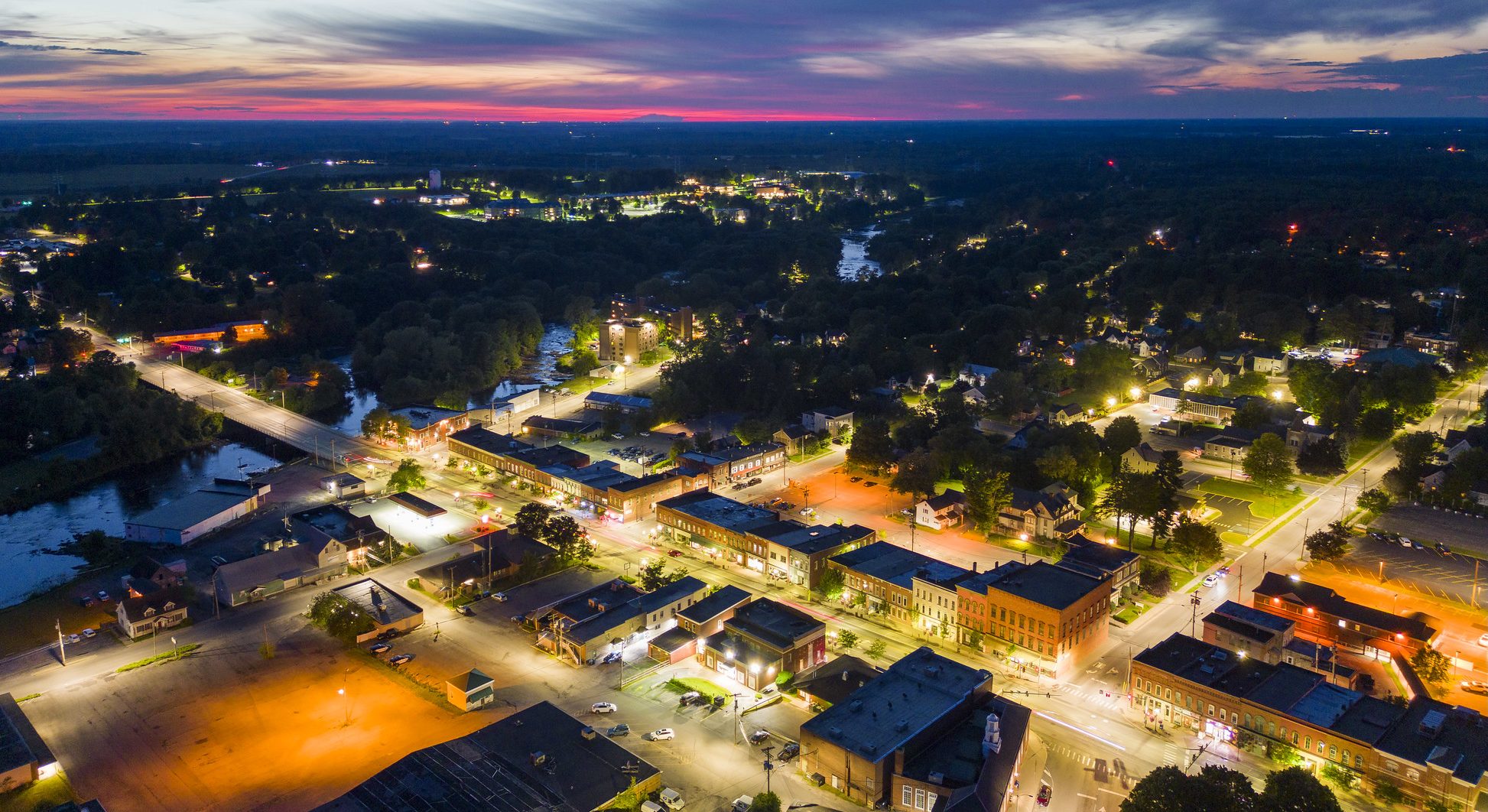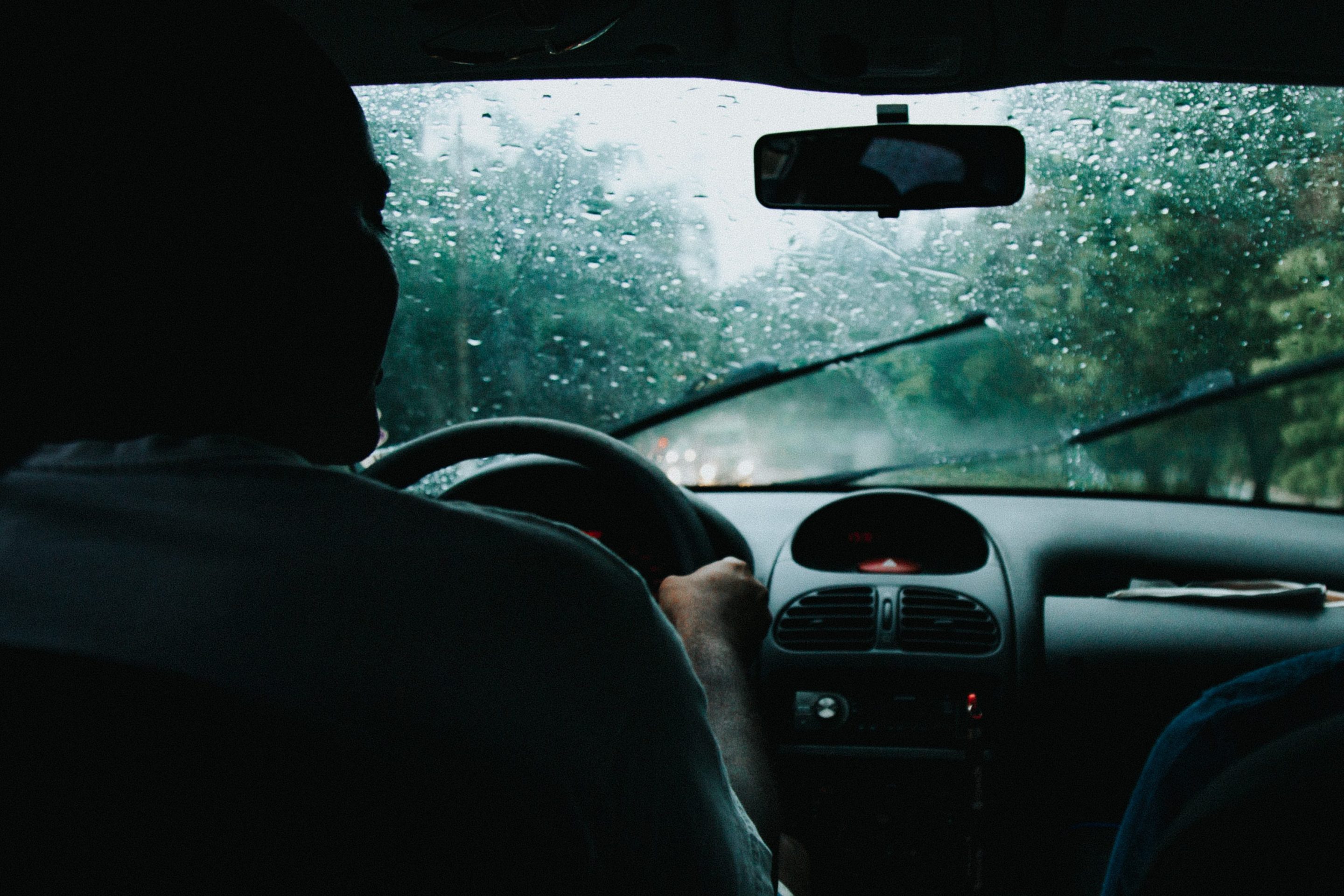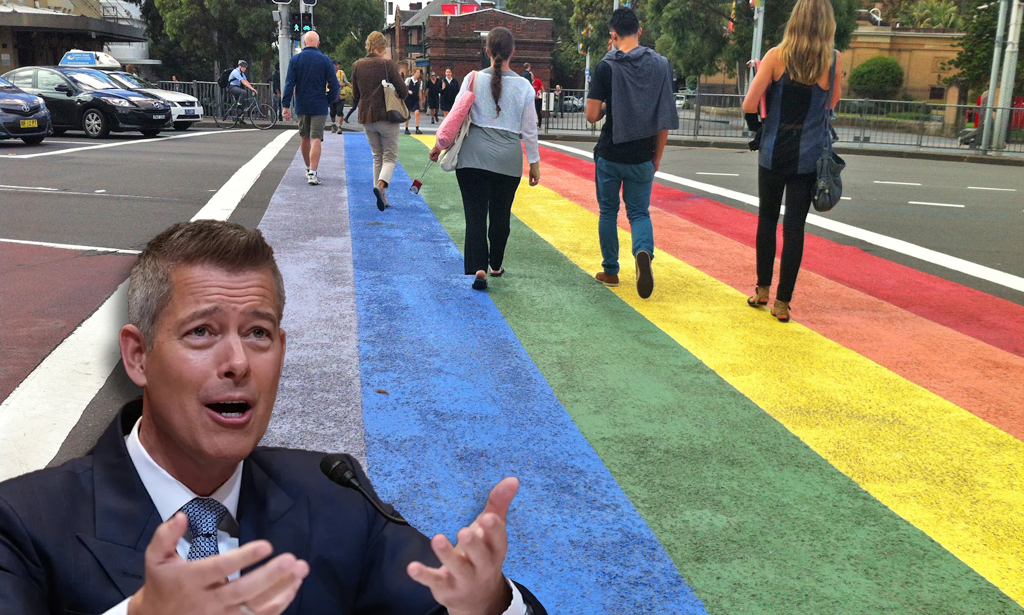A couple of weeks ago I left the transit-rich confines of New York City and headed down South to visit family. I made it all the way to Meridian, Mississippi, without getting in a car (I rode the subway to Penn Station and took Amtrak from there), but once I got off the train in Meridian, I did what everyone else in America does: I put my rear end in the driver's seat and started driving. Driving to visit the relatives. Driving to the store to buy allergy medicine for my kid. Driving to buy food for dinner. Driving driving driving. It drove me crazy. And for my seven-year-old, who is not used to doing time in the back seat, it was torture.
 What Mom looks like from the back seat. Photo by Nathaniel Goodyear.
What Mom looks like from the back seat. Photo by Nathaniel Goodyear.It was also an important reminder of American reality for someone who lives in a place (Brooklyn) where a car-free existence is not only possible, it's actually more convenient than living with a car. Because for so many people in this country -- even those who really "get it" in terms of sustainable transportation -- that's just not the case. They may want to be taking transit, or walking, or biking, but the way their communities are set up makes it impractical or downright impossible. And they feel lousy about it.
That's the subject of today's featured post on the Streetsblog Network, from East Busway Blog in Pittsburgh:
I live a double life. In my ideal (weekend) life, I either walk, or hop on the busway or another bus to get to things that I need to... Life is good.
Then there is my dirty little secret. 5 days a week, I get in a car, and I drive 40 minutes in the car, by myself to work and back. Don't worry, I hate it. It's stressful, tiring, and long. In fact, I daydream about being able to hop on the busway, or any other form of public transit and sit back, and relax, read, listen to music etc, while I am taken to work.
Why do I live this double life you ask? Because I have to. I really tried to find a way to make it work using mass transit, but I can honestlysay it would not work. I would have to take a Port Authority bus to Pittsburgh Mills, wait (and I mean wait), get a Westmoreland transit bus to New Kensington, (wait again), and then take another Westmoreland County bus the remaining distance to work. If it were to work for me, I would have to leave three hours before work started. That would put the start of my journey at 5 A.M. Even if I were committed (or crazy) enough to undertake that daily sojourn, it would not be possible, because of how early my trip would have to start.
Leaving New York always makes me newly thankful for all of our transportation options when I return. And it always makes me newly amazed at how many people here use and depend on cars when they don't have to.
Fortunately, there is a growing movement of people around the country, in all kinds of communities, who want things to change. That's what the Streetsblog Network is all about. And here's some other news from the network: We've got an update on the Connecticut red light camera bill from WalkBikeCT; a hopeful report on transit in Sacramento from RT Rider; and from Decatur Metro, proof that the Georgia state government is ready to compete with New York's for dysfunction when it comes to funding transit.





